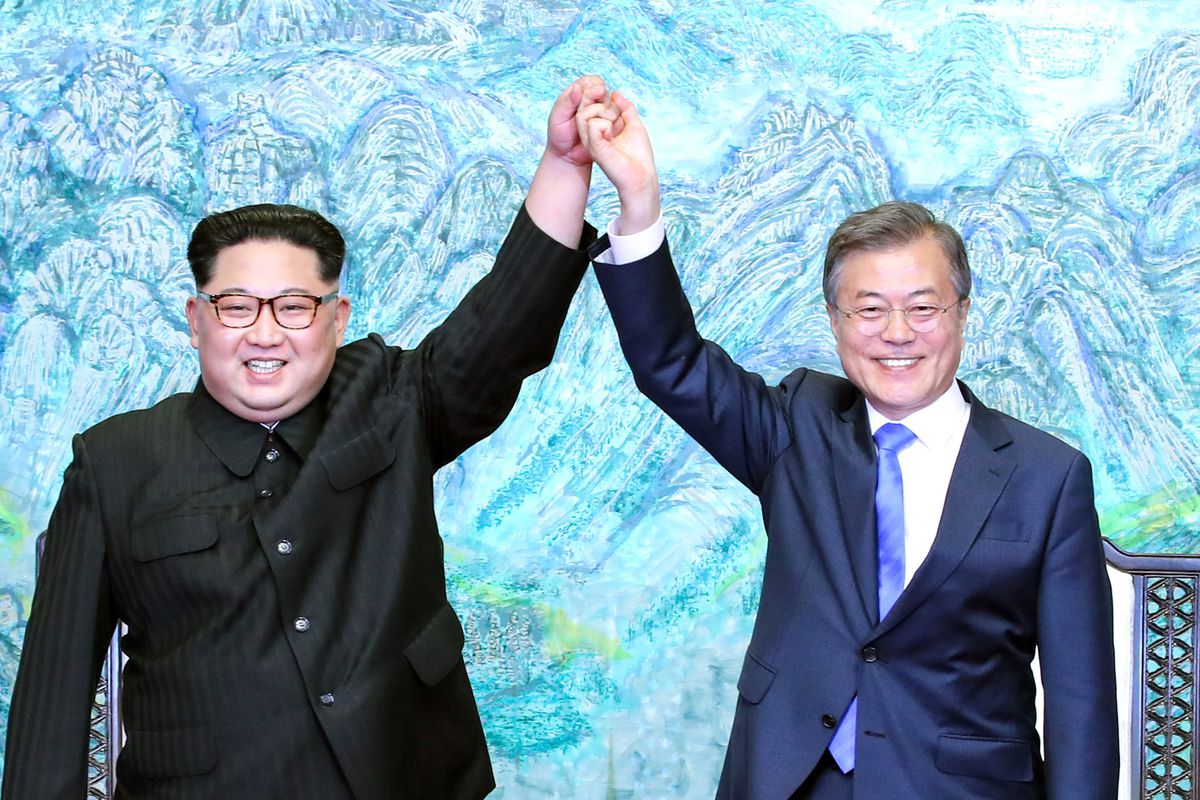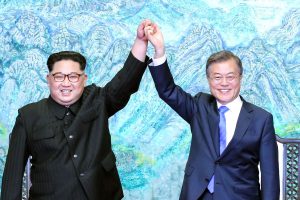Kim Jong UN: the UN, NGOs, and Development in Post-Korean War North Korea


By Amanda Lawson
South Korean president, Moon Jae-in and North Korean leader, Kim Jong Un met in the DMZ on April 27, 2018, each crossing briefly into the others’ nation—for the first time since the Korean War began in 1950. This Inter-Korean Summit established plans to formally end the Korean War and to denuclearize the peninsula. It also created hope of opening of North Korea to greater and freer participation in the global community. Kim Jong Un has also scheduled a meeting with United States president, Donald Trump, for later this year, in efforts to move forward in diplomatic relations on an international level. However, if North Korea is to truly enter into full participation with the global community, bilateral negotiations are insufficient. This is due in part to the immense development effort that must accompany the country’s inclusion in global affairs and its incapacity to develop without significant aid. In light of this, the United Nations must become involved and enlist the help of a variety of partners, namely, nongovernmental organizations (NGOs).
North Korea has been a member of the UN since 1991, which should make UN development efforts—rather than bilateral agendas—effective in the country. Even as tensions with other nations, including the United States and South Korea, ease, the ability of the UN to work in the country as a supra-political development agency provides the best path forward for North Korea. As the world looks to increasing inclusion of North Korea in the global community, the dramatic need for development in the country is apparent. Decades of stifled economic growth and lack of infrastructure have set North Korea at the base of a steep mountain. Technical assistance, food programs, and in some cases, emergency relief efforts, must be undertaken and can only be successful under supranational leadership of the United Nations.
But the UN cannot do it alone; the task is far too great. It must call upon similarly supra-political organizations for assistance, in this case, international NGOs. While it is difficult to argue that these organizations are apolitical, their inherent transnationality gives the perception of being above national politics, allowing NGOs to work as champions for the people they claim to serve, rather than the government. From the early days of the United Nations, NGOs have been partners in its development efforts, both in creating development plans and carrying them out. It is important to look at the ways NGOs have helped shoulder the development burden in the past and to use those examples to devise best practices as the UN looks to the overwhelming task before it. Organizations like the Red Cross/Red Crescent, Amnesty International, World Vision International, Oxfam, and CARE International have worked in conjunction with the UN for decades; many originating from World War II relief, and the Red Cross even pre-dating the creation of the UN.
These organizations have aided the United Nations in data collection and analysis, as well as service delivery in development projects throughout the postwar period. Prime examples of this include Amnesty’s advocacy for human rights and against torture worldwide, CARE and Oxfam’s attempts to tackle hunger in postwar Europe, World Vision’s hunger campaigns in Africa and Latin America, and the Red Cross/Red Crescent’s emergency and disaster relief efforts throughout the world. In emergency situations, these and other NGOs are able to provide assistance not only in immediate relief efforts, but to help address root causes of poverty and injustice, and to help implement sustainable practices for change.
As the world looks toward North Korea, challenges of underdevelopment are the greatest obstacle to its full participation in the global community. The United Nations, and its NGO partners, must work with Kim Jong Un to bring the nation up to date with the rest of the world. This means infrastructure development and technical expertise training; food programs and agricultural development; greater emphasis on human rights and freedoms, all of which will require significant time and effort on behalf of all parties involved. The 2018 Winter Olympics brought a new level of hope for North Korean progress in the eyes of the world when South and North Korean athletes competed under one flag. This broadcasted to the world that the Korean peninsula was ready and willing to move forward from its past struggles and more fully commit to participation in the global community. It is now on the other members of that community to in turn commit to North Korea, providing any means necessary for development and working with its leaders to fulfill the goals laid out in the UN Charter.
Amanda Lawson is a graduate student in history at Miami University, focusing on the Carter administration’s engagement with NGOs in Latin America as a means of foreign relations.